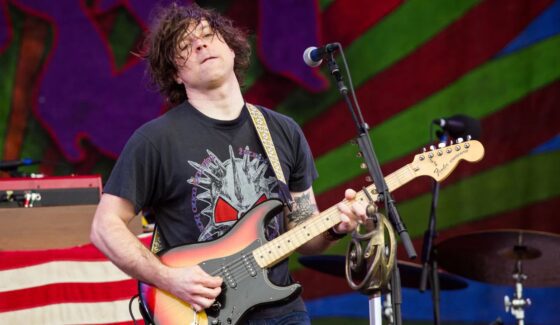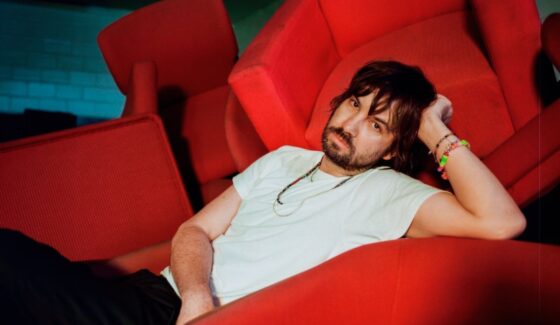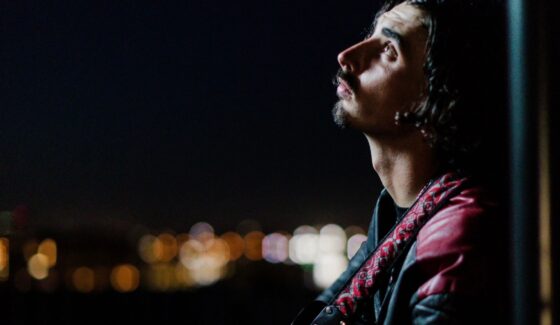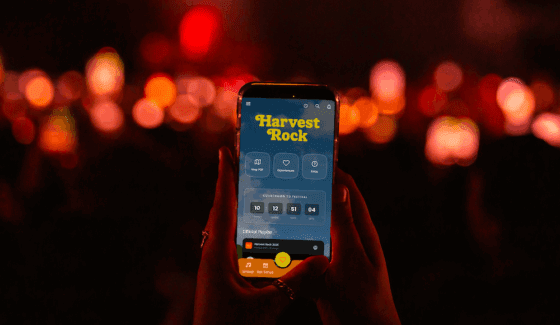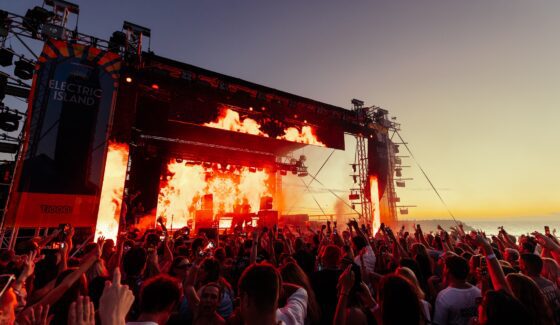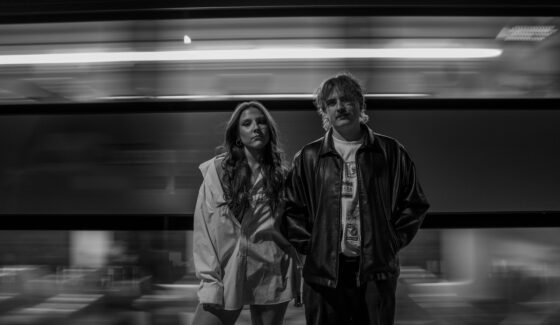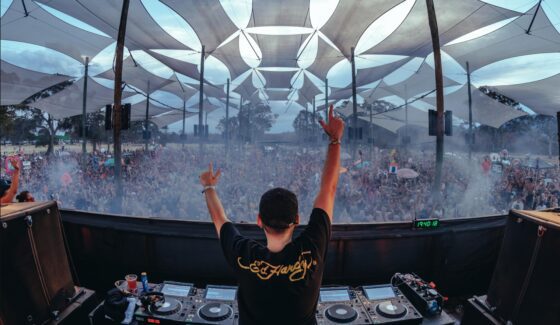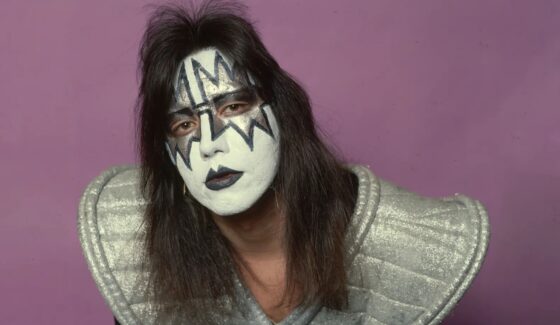Interview: High Tropics Fill Us In On NFTs
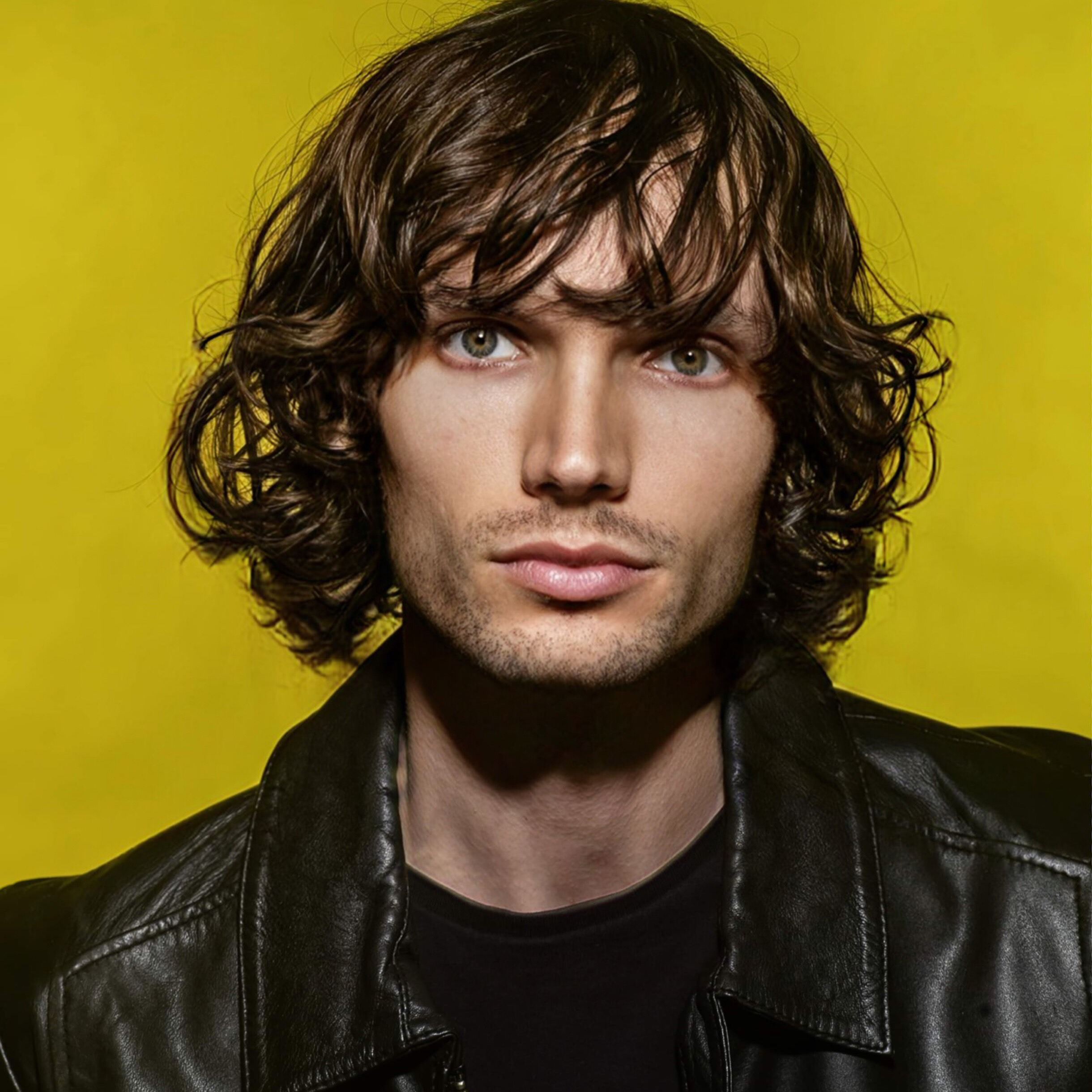
Currently, the most collected Indie Rock Australian artist in web3 with his project High Tropics, selling over 650 music NFTs since July last year and generating the equivalent of over 6 million streams, Josh Stewart is at the forefront of web3 and music NFTs. We sat down with Josh to interview him about his experiences as a pioneering artist in the web3 space.
Can you explain what NFTs are and how they relate to the music industry?
An NFT, or non-fungible token, is like a unique, one-of-a-kind digital collector’s item. It could be anything from a piece of artwork to a video or song. They can solve a lot of problems in the music industry by proving authenticity, automating transactions, reducing the need for intermediaries, and improving transparency.
How do NFTs benefit both artists and fans in the music industry?
They enable artists to sell their music directly to fans, giving fans immediate access to artists, and artists direct access to fans in a way that’s not possible through streaming. They also allow for a whole new monetisation system for both artists and fans. Imagine someone is selling an original edition of 1 of the first 1000 pressings of a Beatles record, and you wanted to buy it. You’d have to:
- A) Travel to wherever the seller is
- B) Verify its authenticity and make sure it still plays.
NFT’s allow that with the click of a finger. This creates a completely new paradigm for fans (or collectors), as they’re able to leverage scarcity and sell the collectible on the secondary market for a profit. Artists also routinely offer special utilities alongside the NFT’s, whether it’s free entry to shows, backstage passes, merch etc.
Can you give an example of a successful music NFT sale or auction?
I’ll give you two examples.
First, from my personal experience as an artist, I sold 25 editions of my song ‘Loaded’ on Sound XYZ, the world’s leading music NFT platform, at .05 Ethereum each. These 25 editions sold out within 24 hours, generating earnings equivalent to approximately 700,000 to 800,000 streams before the song was even released on DSPs.
Second, I’ll show you how it can benefit collectors. The first secondary sale I ever had was a great example. One collector bought one of the 25 editions of ‘Loaded’ on the primary market, then sold it on the secondary market for .2 Ethereum, making a profit of approximately $200 USD at the time.
How does the ownership and distribution of NFTs differ from traditional music ownership models?
In the traditional models, the ownership and distribution rights to music are often controlled by record labels, music publishers, and sometimes distributors. These entities are responsible for promoting, distributing, and monetizing the music on behalf of the artist. With NFT’s the transaction is direct from fan to artist, essentially cutting out the intermediaries. As for rights ownership, typically there are no copyrights tied to the NFT, it’s merely a digital collectible, however there are artists who have made substantially more money tokenising their copyright and including it in the sale of the NFT.
How do you see NFTs impacting the music industry in the future?
I see a future where music NFTs coexist with existing legacy systems. However, both major and independent labels and publishers, as well as PROs, have been exploring the potential of web3. I believe this will continue to be driven by the capabilities of blockchain technology, such as automating royalty payments and providing transparency about where and to whom income is being distributed to.
Can you discuss the current challenges and limitations of NFTs in the music industry?
Right now, the NFT space is still very much the wild west. I believe the biggest challenges and limitations are the lack of standardization and regulation, as well as the absence of education and onboarding programs for artists and fans interested in entering the field. Setting up an e-wallet is easier than it sounds; the real challenge is simply getting people to act. I’ve seen artists who can sell out thousands of tickets at venues across the country, struggle to sell 50-100 edition NFT collections, which illustrates how difficult it can be to convert a traditional fan into a collector.
How do you think NFTs can be used to combat music piracy and protect artists’ rights?
By providing a secure, verifiable chain of ownership for digital music. With NFTs, each piece of music is unique and tied to a specific owner, making it much harder for unauthorized copies to circulate. This makes it easier to track and address instances of piracy, as the original owner of the NFT can prove their ownership and act against any unauthorized use of their work.
How do you see the market for music NFTs evolving in the next few years?
We’ve been in a bear market for the past year and while overall volume for NFT’s (which disproportionately favour visual art pieces like profile pictures, i.e., your Bored Apes etc) has dropped substantially, music NFT’s have continued to chug along despite market conditions. I personally think music NFT’s are yet to have their moment and believe in a year or two, we will start to see a lot more people entering the space.
Can you discuss any innovative uses of NFTs in the music industry that you find particularly interesting?
Personally, I find the tokenization of copyright very intriguing. I haven’t experimented with it yet, but I think it could potentially solve one of the biggest challenges faced by most independent artists: getting people to care. There’s no better incentive than giving someone a stake in the game. Another interesting way to achieve this is through the creation and use of DAOs (Decentralized Autonomous Organizations). In a DAO, decisions are made by a majority vote of its members, rather than by a central authority. Some artists are using DAOs to manage their careers and connect with fans. For example, an artist could create a DAO to sell their music directly to fans as NFTs and use the DAO to make decisions about the distribution and monetization of their work. Members of the DAO, who could be fans, investors, or other stakeholders, would have a say in these decisions through the voting process, essentially enabling their fans to act as their label.
What excites you the most about music NFT’s and the web3 space?
One of the things that I find most exciting about the space is the scene that’s developing. It feels like the early days of SoundCloud, but it’s borderless and not confined to any one genre. Moreover, it’s such a welcoming community. I’ve made friends from all over the world thanks to web3, some of whom I speak to almost every day.
Do you have any tips for artists or fans wanting to get involved in web3?
Get yourself on Twitter and follow some of the thought leaders in the space. There’s probably no better way to learn. Additionally, get into the Discord servers of some platforms and artists in the space, some of which have step-by-step tutorials. Finally, take it slow and try not to get overwhelmed by all the information. It will feel like entering an entirely different universe and it can be all-consuming.
